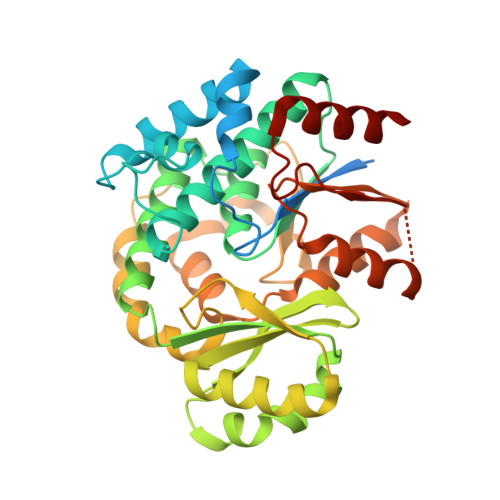Structural and functional analysis of the loading acyltransferase from avermectin modular polyketide synthase.
Wang, F., Wang, Y., Ji, J., Zhou, Z., Yu, J., Zhu, H., Su, Z., Zhang, L., Zheng, J.(2015) ACS Chem Biol 10: 1017-1025
- PubMed: 25581064
- DOI: https://doi.org/10.1021/cb500873k
- Primary Citation of Related Structures:
4RL1 - PubMed Abstract:
The loading acyltransferase (AT) domains of modular polyketide synthases (PKSs) control the choice of starter units incorporated into polyketides and are therefore attractive targets for the engineering of modular PKSs. Here, we report the structural and biochemical characterizations of the loading AT from avermectin modular PKS, which accepts more than 40 carboxylic acids as alternative starter units for the biosynthesis of a series of congeners. This first structural analysis of loading ATs from modular PKSs revealed the molecular basis for the relaxed substrate specificity. Residues important for substrate binding and discrimination were predicted by modeling a substrate into the active site. A mutant with altered specificity toward a panel of synthetic substrate mimics was generated by site-directed mutagenesis of the active site residues. The hydrolysis of the N-acetylcysteamine thioesters of racemic 2-methylbutyric acid confirmed the stereospecificity of the avermectin loading AT for an S configuration at the C-2 position of the substrate. Together, these results set the stage for region-specific modification of polyketides through active site engineering of loading AT domains of modular PKSs.
Organizational Affiliation:
†National Key Laboratory of Biochemical Engineering, Institute of Process Engineering, Chinese Academy of Sciences, Beijing 100190, P.R. China.














